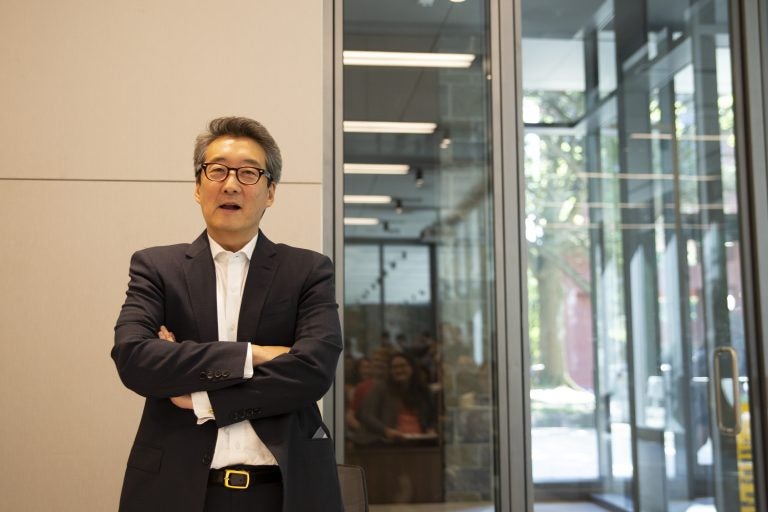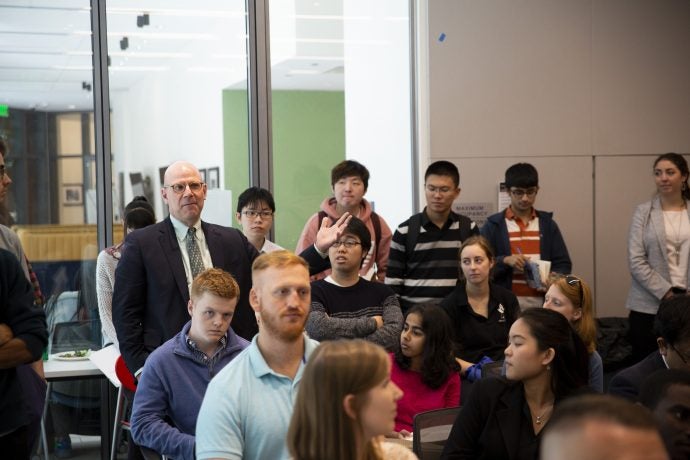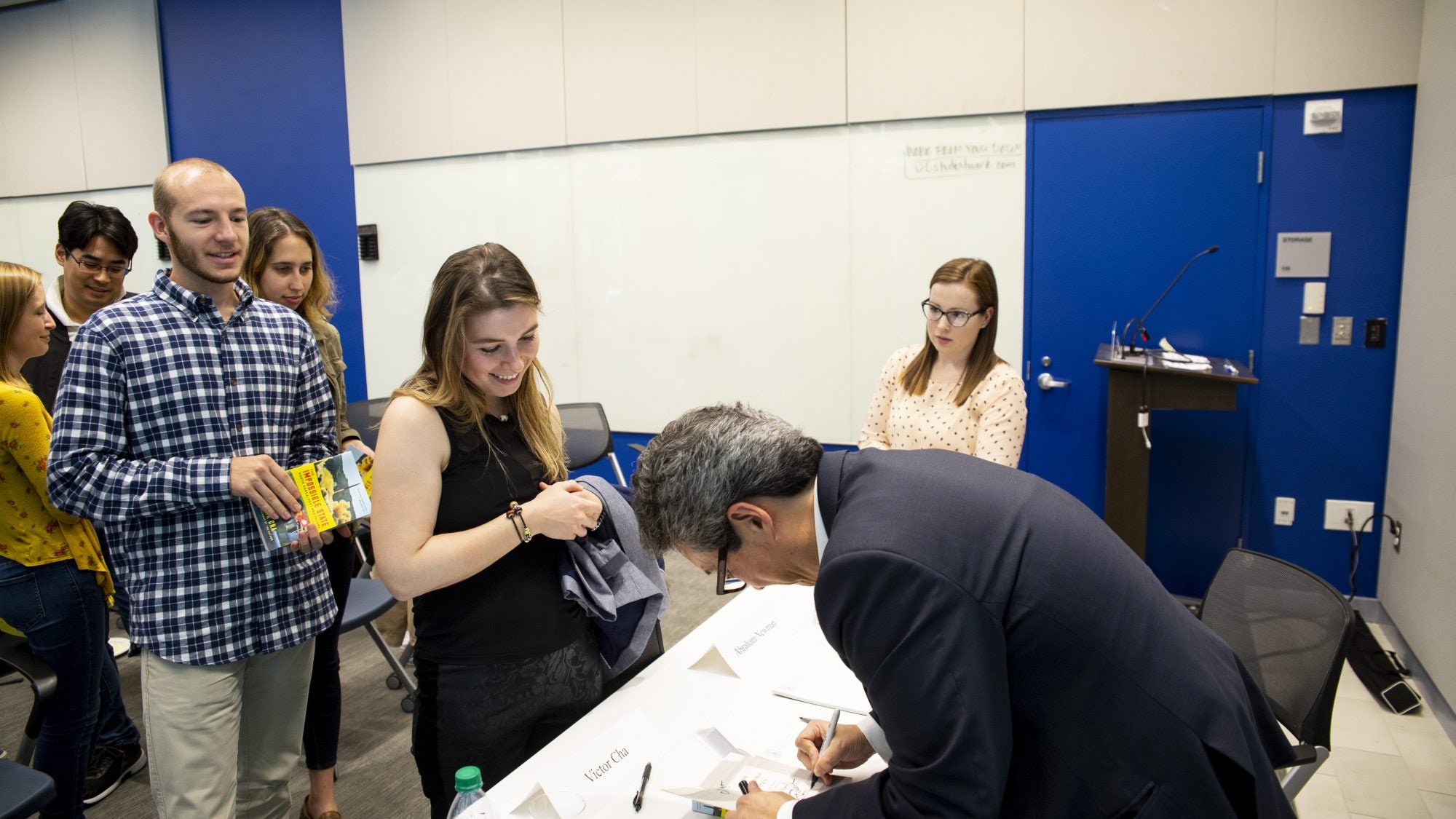With humor, Cha reflected on how he originally came to write the book. After spending 2004-2007 on the National Security Council as Director for Asian Affairs and serving as the deputy head of the U.S. delegation at the Six Party Talks on the nuclear threat, Cha confessed to North Korea fatigue. He needed a break before writing such a book. After what was considered an appropriate period of “detox,” Harper Collins approached him again. In 2011 the publishing house gave him an eight-month deadline for completion. When in December 2011, the North Korean Supreme Leader Kim Jong-Il died unexpectedly, Cha’s deadline was shortened to three months.

During his talk, Cha reflected on how much the situation in North Korea has changed since the first version of The Impossible State was released in early 2012. Kim Jong-Un, who became Supreme Leader after the death of his father, has gone from being an uncertain leader of a regime, who many, including Cha himself, predicted would not last, to a strong-willed dictator who appears to have eliminated all threats to his rule. The United States’ relations with North Korea has experienced similar changes. Cha discussed how the relatively stable period of inaction under President Obama mutated into the frightening days of 2017, when war seemed increasingly likely and the rhetoric between President Trump and Supreme Leader Kim reached a fever pitch. Trump famously referred to Kim as “Rocket Man” and Kim replied by calling the president “a dotard.” Since then, relations have improved. Cha analyzed the recent Trump-Kim summit that occurred in Singapore, acknowledging that a such a high-level meeting could result in an agreement that “no one else could make at lower levels.” The downside, however, is that if the meetings are merely “window dressing” then all the diplomatic avenues will truly have been exhausted.

Cha’s prediction on the durability of the North Korean state reflected the paucity of information that foreign observers have on the internal goings-on of the Kim regime. Even, Cha, who has spent years studying, analyzing, and even visiting North Korea could only express uncertainty: “North Korea could collapse tomorrow and we wouldn’t be surprised… but it could just as easily be here 25 years from now.”
Following Cha’s talk on the main points of the book, he answered questions from the audience, which covered topics that ranged from the the country’s ability to trade to Pyongyang’s relationship with Beijing. He then signed copies of his book for attendees.
